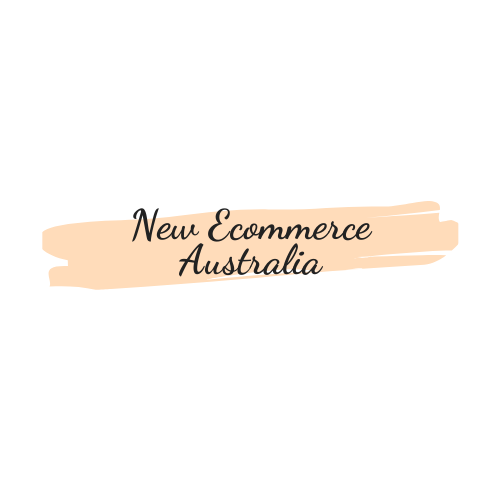See our services : Blockchain development, Backbase Solutions
The DAO Governance Model: A Beginner’s Guide
The new distributed ledger technology has been a subject of considerable attention due to the rapid rise in blockchain applications. Blockchain is widely considered the foundation of cryptocurrency. Since then, many new offerings have been created. The most important thing is that blockchain has fueled the push towards decentralization as never before, with DeFi and NFTs.
The concept of DAOs is a clear indication of the potential for blockchain to achieve its true vision. Recent discussions about DAO governance models have generated a lot of noise, with many examples of DAOs and decentralized autonomous organisations. What is the role of DAOs in blockchain? This discussion will help you to understand DAO governance as well as the different governance models and provide examples.
You can build your career as a blockchain expert by becoming a 101 Blockchains’ certified Blockchain Expert.
Definition for DAO Governance
Before you can start to implement DAO governance best practices, it is important that you understand the basics of DAO governance. Satoshi published the first cryptocurrency, bitcoin, almost a decade ago in the form a whitepaper. This document presented the idea for a peer-to-peer, decentralized cash system. The P2P cash system developed new features that allow transactions to be made without compromising data integrity and security.
Users have expressed concern about the adoption of new governance models in systems that involve multiple parties since the introduction of blockchain. Blockchain is essentially a way to ensure that users are not under the control or any central entity. Here you will need to establish clarity about governance.
DAO governance token was born in 2013 with the advent of Decentralized Autonomous Companies (DACs), as they were known at that time. While the source code was clear and concise, the DACs entrusted cryptocurrency as shares in the company.
Understanding DAOs will help you gain more clarity on the question “What is DAO governance?” DAOs, or Decentralized Autonomous Organisations, are not representative for one application. They represent an entire organization. DAO governance can be described as the rules that govern the operation and process of DAOs, along with the actions of DAO members.
Do you want to be a bitcoin expert yourself? Register Now for Get Started with Bitcoin Technology Course
Working with DAOs
DAOs are a description of DAOs that explains DAO governance. The Decentralized Autonomous Organizations (DAOs) are virtual entities that operate without the intervention of humans. The DAO is controlled by users, not any private entity or person. Users can also decide the DAO’s future direction. Decentralized Autonomous Organisations (or DAOs) are not like the common conditional transactions programs that are managed by profit-oriented organizations.
The Global Awarded Magento POS – 2021 Stevie Awards Product Innovation winner provides you with a powerful Magento POS extension as well as 24/7 support. Other products : Shopify Pos, Bigcommerce Pos, Woocommerce Pos
DAO governance can be explained in detail by looking at how DAOs function. The smart contract that defines the rules and conditions for transactions is the basis of decentralized autonomous organization governance. The network would be able to provide transparent documentation for all rules and transactions.
Important to remember that DAO governance is solely dependent on its members. They make the most important decisions about the future of the project. Through a core group, smart contracts can help to define the DAO’s rule set. Any member could benefit from the assurance of public evidence, audits, and verification to understand how the protocol works at various times.
You want to see real-world smart contracts in action and learn how your business can benefit from them? View the presentation Examples of Smart Contracts
Types decentralized autonomous organizations
This overview of DAO governance is an excellent resource for beginners to learn about decentralized governance. Before you can learn more about common DAO governance methods, however, you will need to first understand the types. A clear understanding of the different types of DAOs will help you better understand the DAO governance model. It is important to note that DAOs can have different structures, technologies, and objectives. This can be a significant factor in defining their governance model. Below is a list of DAOs, and the functions they perform.
-
Operating Systems DAOs
Operating system DAOs can be considered standalone platforms that aid one or more organizations in creating their DAOs. Orca and Colony are two of the most popular operating system DAOs.
-
Protocol DAOs
Protocol DAOs are a popular option among DAOs. Protocol DAOs could leverage a DAO governance token to act as a voting indicator and implement the protocol. You can see some examples of protocol DAOs in the cases of Yearn, Unswap, and Curve.
-
Investment DAOs
Investment DAOs, such as BitDAO, are the next most popular type of DAOs. Investment DAOs are used to support initiatives that pool capital for investments into various DeFi or crypto project.
-
Media DAOs
Media DAOs are also a popular highlight in understanding how a data governance Template run on smart contract could bring about promising improvements in efficiency. Their transparency and use cases are the greatest benefit of media DAOs. One of the most important uses of media DAOs is the ability to create decentralized news aggregators that can serve consumers’ interests.
-
Collector DAOs
There are many types of DAOs. This list includes collector DAOs. These DAOs are unique DAO that can be used by NFTs as well as artists. Collector DAOs provide the desired support to enable fractional or complete ownership of content and art. Flamingo is one example of a collector DAO.
-
Social DAOs
One of the most prominent DAO governance platforms is the social DAOs. Social DAOs have a similar design to decentralized social networking sites and are one of the most prominent governance models that use DAOs.
-
Grants DAOs
Grants DAOs, as the name suggests, are decentralized venture capitalist communities that use governance tokens to make capital allocation decisions. Moloch is one of the most well-known Grants DAOs.
Are you interested in becoming a certified NFT expert? Register Now for Certified NFT Professional Course
DAO Governance Models
An illustration of DAOs can be used to help you understand the different types of DAO governance. Before diving into the different types of DAO governance, it is important to understand how DAO governance works. The rules are then written by the community in smart contracts. Participants can create a DAO through allocating funds or relying upon governance.
Where are the funds coming from? Tokens are issued by the DAO to users. These tokens can be used to fill up the DAO Treasury. Users who buy tokens are granted voting rights under the DAO governance model. The DAO can begin preparations for deployment once it has enough funds. The DAO smart contract cannot be modified after it has been put into production. You can, however, try to reach a consensus through member voting.
A few governance models can be identified based on the decentralized autonomous organization governance approach. Let’s take a closer look at each model, along with some examples and explanations.
Learn more about blockchain technology. Register Now for Certified Enterprise Blockchain Professional Course
-
Constitution DAO
Constitution DAO is the first DAO governance token that highlights efficiency in DAO governance. It is a DAO that can help users pool resources and share ownership of assets via cryptocurrencies. A core group of people encouraged others to buy a replica the US Constitution. This is how the project began. The example of Constitution DAO shows the DAO collector governance model.
Constitution DAO was very close to the final deal, as it could fetch around $47million in ETH. Despite the fact that the artifact was sold for $43.2 million, the auction house lowered the price of Constitution DAO to cover other expenses. The DAO included taxes and the cost of maintaining the Constitution. Despite this failure, Constitution DAO demonstrated the power of DAO governance to encourage collective effort among people.
-
Friends with Benefits DAO
Friends with Benefits DAO, or FWB DAO, is the next addition to discussions about a data governance template with DAO governance. It’s basically a community for web3 lovers, which functions in the same way as a social networking site. Friends with Benefits DAO uses governance token to facilitate entry.
The governance model for FWB DAO was simple and used consensus. It relies on Discord to communicate proposals and require documents to formalize them. Snapshot is used to vote on different proposals in the governance model at the FWB DAO.
Are you interested in becoming a Cryptocurrency expert. Register Now for Cryptocurrency Fundamentals Course
-
JuiceboxDAO
JuiceboxDAO, another prominent DAO governance platform, is something you should know about. This unaudited platform allows different projects to raise funds through public smart contract on Ethereum. JuiceboxDAO’s governance model helps to create a fundraising page and then create a funding structure. It is also useful in determining how funds and tokens are distributed among members of the community. JuiceboxDAO’s governance model is different. It appears more formalized and centralized.
-
DAO
The Ethereum name service DAO would be the final example of DAO governance models. This DAO is useful for issuing ENS tokens each registered Ethereum domain. The ENS DAO is an example of a three-layered DAO governance approach. The community has a discussion about the proposals. Anschließend, ENS DAO dives in to off-chain voting through delegates. Finally, the final voting process takes place on the Blockchain.
Are you eager to learn about the basics and advanced concepts of ethereum tech? Register Now for The Complete Ethereum Technology Course
Final Words
DAO governance details and the importance of DAO governance token within the DAO community give a convincing impression of the impact DAOs can have on change. Decentralized projects could be called proxy for decentralization if there are no DAOs. The Decentralized autonomous organization gives power back to users. DAO governance also proves this.
Users can vote on DAO-related proposals with the support of DAO governance. Decentralized autonomous organizations can be tailored to meet a variety of purposes and use cases. It is more common to have confusion when trying to understand the different types and governance models of DAOs.
source https://101blockchains.com/dao-governance-model/

